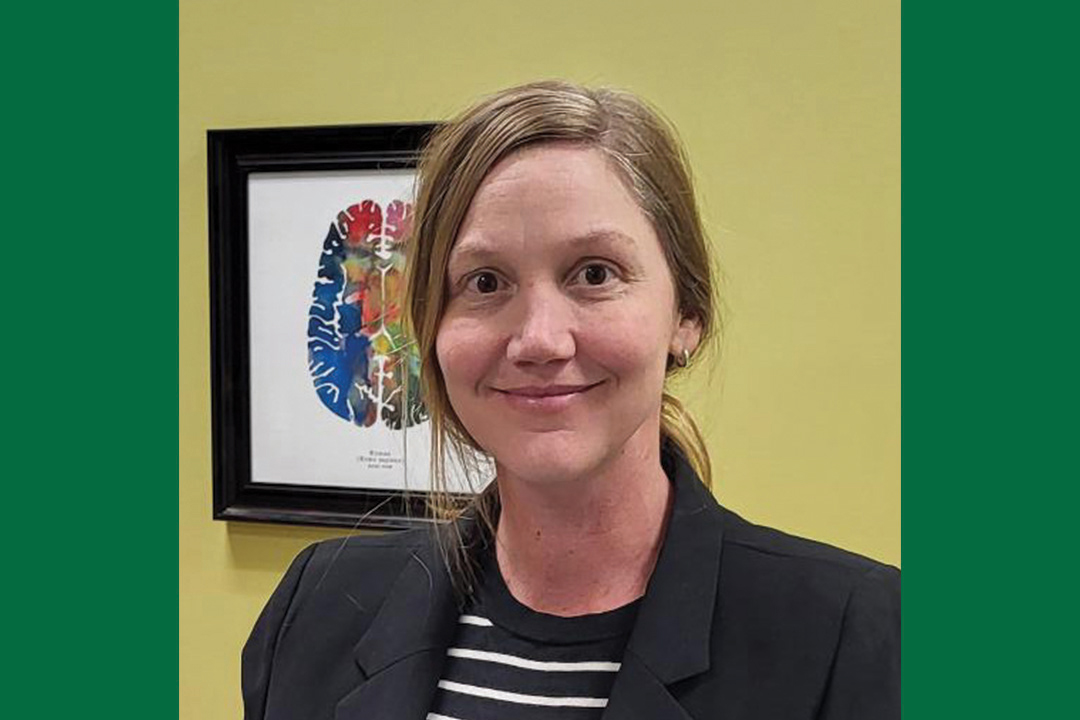
USask honours MS researcher
The University of Saskatchewan (USask) has chosen Dr. Sarah Donkers (PhD), assistant professor in the School of Rehabilitation Science in USask’s College of Medicine, as the 2024 New Researcher awardee for her sustained and widely acclaimed contributions to neurorehabilitation and multiple sclerosis (MS) rehabilitation.
By SARATH PEIRIS FOR RESEARCH PROFILE AND IMPACTThe award will be presented on June 18 at the USask staff and faculty awards ceremony.
"I am rarely speechless, but I'm speechless and honoured,” Donkers said of her recognition as USask’s New Researcher. “This is recognition for all the people willing to work with me, from people living with MS to health-care providers to physicians to people in the health region and even the Ministry of Health.
In the five years since earning a doctorate focused on neurorehabilitation from USask, Donkers has assembled multi-stakeholder teams in Saskatchewan and across Canada to advance MS research.
She describes her work as moving two trains forward: one is lab research to better understand how to promote neuro-recovery after central nervous system damage; the other is to share positive lab findings with people living with MS, and health care and health system professionals, to accelerate the translation of research into meaningful clinical care. In the process, Donkers has been awarded more than $20 million in 31 research grants, 18 of those as PI/co-PI.
Understanding of MS is gaining momentum, she said, with research showing the disease has an inflammatory component and a neurodegenerative component.
All drug therapies to date have addressed the immune component and essentially stopped the recurring inflammatory attacks. Now there's more focus on the neurodegenerative and neurorecovery components, so the role of rehab has never been more important,”
Dr. Katherine Knox (MD), associate professor in the College of Medicine who was one of Donkers’s two nominators, has joined Donkers in leading a Canada-wide team developing the first-ever best practice guidelines for MS rehab. Their goal is to provide MS care professionals across Canada with evidence-based recommendations and implementation tools to ensure that all neurologic patients, no matter where they live, have equitable access to a standard of care.
As we develop that expertise, it becomes a community of practice,” she said. “Then, as we learn from our research—BOOM—we have a network for faster dissemination, and we keep moving the two trains forward.
She is excited about being a co-lead and founding member of MSCanRehab, a network of seven multi-disciplinary researchers across Canada, that was one of only nine groups worldwide to be funded by the International Progressive MS Alliance to develop, test and implement novel therapeutic interventions.
“It highlights the importance of a network. In my little lab I can do my little research, but we are going to be doing better research, faster, when we have these teams working together.
Donkers has received numerous awards for her research, leadership, and teaching, including SHRF’s 2020 Research Excellence Award, Saskatchewan Physiotherapy Association Award for Research Merit, a Physiotherapy Canada Trailblazer Award that recognizes emerging researchers, and a USask Provost’s Outstanding New Teacher Award. Donkers also is recognized for her eagerness to mentor students, having supervised 34 research-based trainees.
“Anyone interested in anything neurological, neuro-rehab, and/or neuro-research, I’m like ‘Come on in, baby.’ Even if they don’t stick to research, at least they get exposure to working with people living with a neurological condition. I think our job is a privilege and I thoroughly enjoy it.
Together, we will undertake the research the world needs. We invite you to join by supporting critical research at USask.
